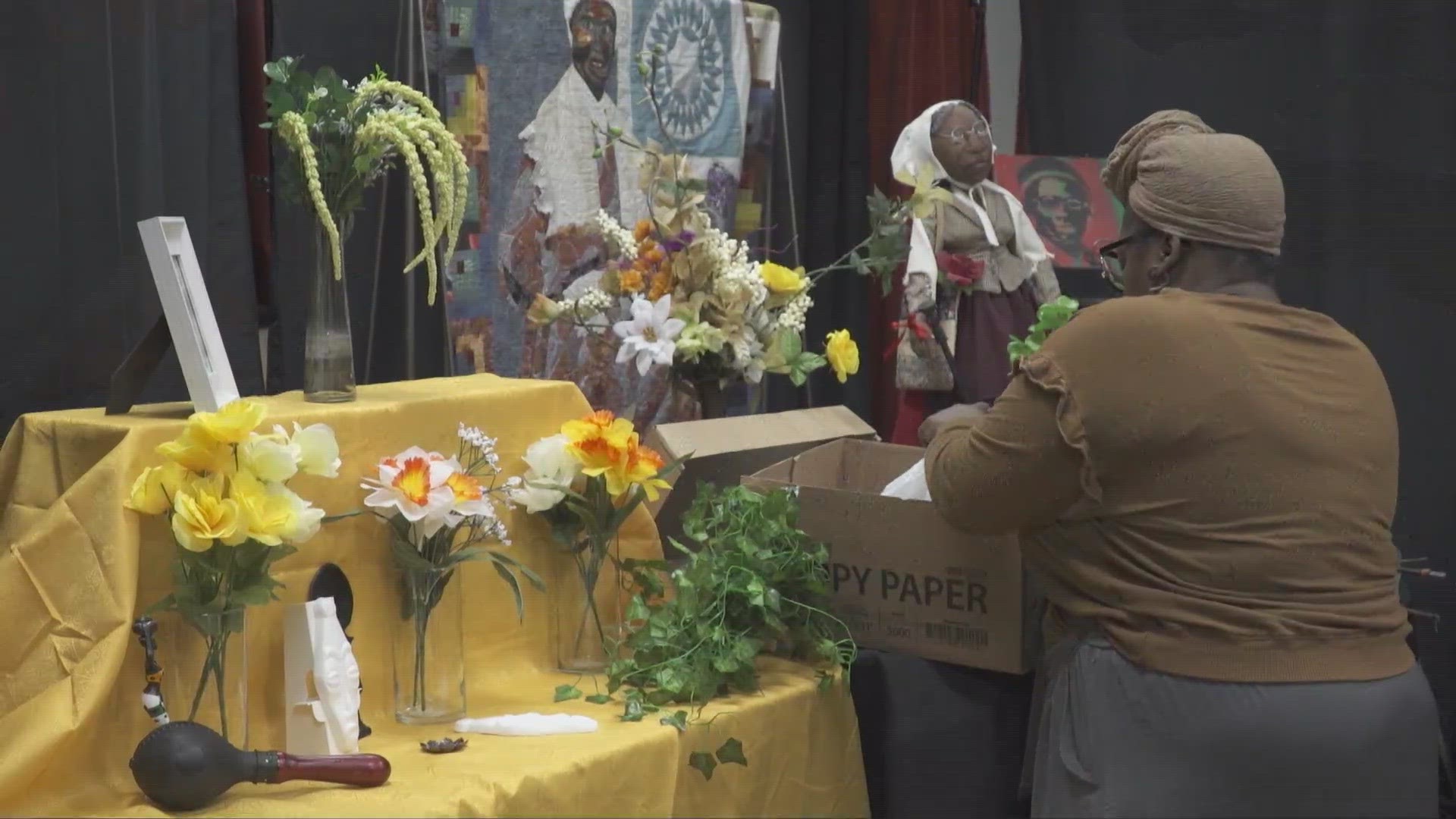SACRAMENTO COUNTY, Calif. — The Sojourner Truth African Heritage Museum celebrated the first day of Kwanzaa at Florin Square in South Sacramento. It's an African American and Pan-African holiday celebrating family, community and culture.
"Kwanzaa brings all walks of life together," said Shonna McDaniels, founder of the Sojourner Truth African Heritage Museum. "Kwanzaa means that me, as an African woman, I can be proud of celebrating who I am."
During the holiday, families and communities organize activities around seven principles. These principles are: Umoja (Unity), Kujichagulia (Self-Determination), Ujima (Collective Work and Responsibility), Ujamaa (Cooperative Economics), Nia (Purpose), Kuumba (Creativity) and Imani (Faith).
In celebration of Kwanzaa, the museum encouraged the community to create altars to honor their ancestors and passed loved ones. The celebration also included ancestral African dance performances, guest speakers and more.
"African Americans have made so many contributions to America and without our hard work, blood, sweat and tears, a lot of the things that we enjoy today would not be possible," McDaniels said. "So, it is important for us to give thanks and honor for the legacy of all of our ancestors who made that possible."
Margo Rose-Brunson attended the Kwanzaa celebration at the museum. She built an altar in honor of her late husband, Charles Brunson. He started the Sacramento Chapter of The Black Panther Party in Oak Park 1968. He died from COVID at the age of 76 in 2020.
"On the altar, I got a picture of him playing the drums because that's what he did," Rose-Brunson explained. "And he was a diviner, so I got the Oracle that he reads from on the shrine. You can celebrate, every year, Black history because that's what we have. We have it every day, 365 days. Kwanzaa is important to us because Black people have waited so long to have an opportunity where we can all come together and Kwanzaa gives us that opportunity."
Another Kwanzaa celebration was held at the California State Capitol Tuesday. The California Black Agriculture Working Group hosted the event. The group shared the history of the holiday and the importance of recognizing African Americans and their culture year-round.
Michael Harris helped organized the event. He says it's important to recognize agriculture and the land, too. That's because Kwanzaa gets its name from the Swahili phrase, “matunda ya kwanza” and is rooted in first fruit celebrations which are found in cultures throughout Africa both in ancient and modern times.
"My favorite thing about Kwanzaa is creativity," Harris said. "We are serious about restoring agriculture as the foundation of our culture and we do that in creative ways. In order to have a harvest festival, you have to have land, you have to prepare the land to grow food and then you have to seed, weed, cultivate and then you harvest."
GET MORE RACE & CULTURE FROM ABC10:
►Explore the Race & Culture home page
►Watch Race & Culture videos on YouTube
►Subscribe to the Race and Culture newsletter
Similar to other holidays, meals play a large part in the celebration of Kwanzaa. According to the National Museum of African American History and Culture, Kwanzaa comes with African-American dishes, as well as traditional African, Caribbean and South American recipes throughout the week.
On Dec. 31, the sixth day of Kwanzaa, there is a large feast called Karamu. Just like other Kwanzaa meals, any dish can be included as part of the Karamu. The holiday traditionally ends with a day dedicated to reflection and recommitment to the seven principles and other cultural values.
Ciara Roseborough participated in the Kwanzaa celebration at the State Capitol. She says she, along with her children, wanted to learn more about the holiday. She goes on to explain her appreciation to the California Black Agriculture Working Group for hosting the event and spreading the word about Kwanzaa and other cultural traditions.
"I'm really here just to learn more, not just from textbooks, but from the mouth of those who have actually lived it," Roseborough said. "For them to come out here and educate us on coming together, unity and just being together as a family and not being divided, just means so much to me."
Kwanzaa was created in 1966 by Dr. Maulana Karenga in the immediate aftermath of the Watts Riots. Karenga is a professor and chair of the department of Africana Studies at California State University, Long Beach. He started Kwanzaa to help reaffirm and restore African heritage and culture, introduce and reinforce the seven principles, serve as a nationally celebrated communal and non-heroic holiday, and to be act of cultural self-determination.
Kwanzaa grew to become a seven-day cultural festival celebrated from Dec. 26 to Jan. 1. To learn more about the holiday, visit the official Kwanzaa website.
We want to hear from you!
The Race and Culture team's mission is to serve our diverse communities through authentic representation, community engagement and equitable reporting. Accomplishing our goals of inclusive reporting requires hearing from you. Is there a person or place that you want us to highlight? Email us at raceandculture@abc10.com or fill out the form below.

